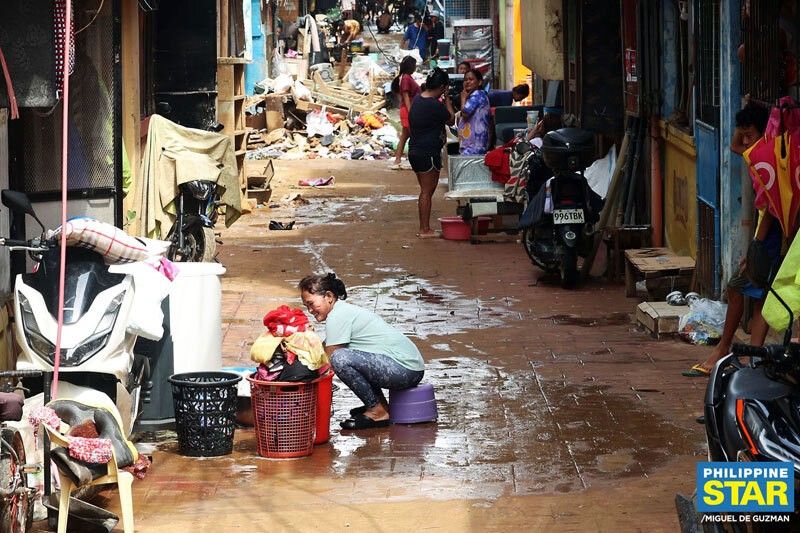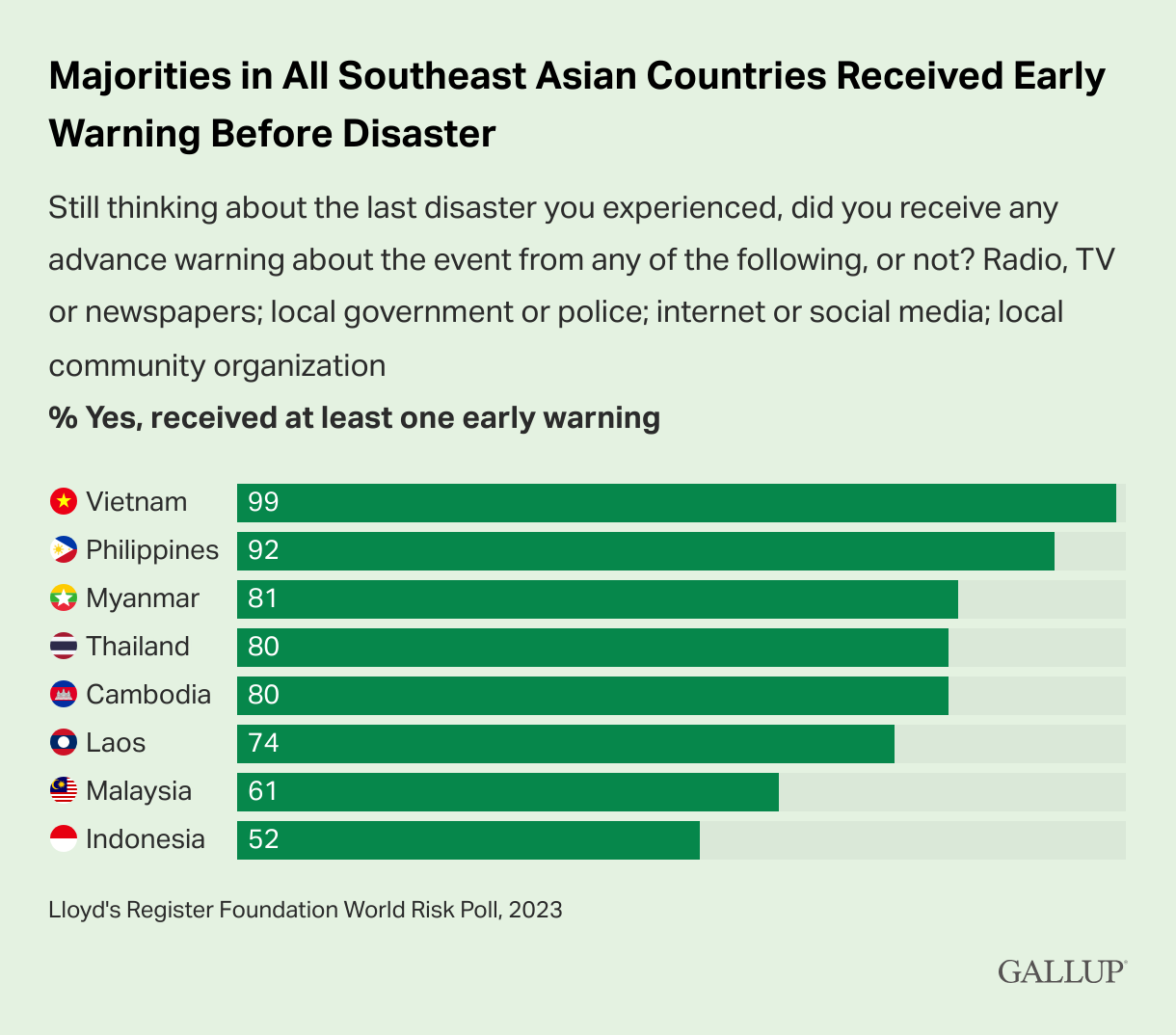Philippines tops global list in household disaster readiness – Gallup

MANILA, Philippines — The Philippines leads other countries in having the highest proportion of households with a disaster plan, a U.S.-based polling firm found.
A recent Gallup survey reveals that 84% of households in the Philippines report having emergency supplies ready in case of a disaster, setting a benchmark for disaster readiness in the region.
This preparedness reflects the country's frequent exposure to natural calamities such as typhoons, flooding, earthquakes and volcanic eruptions. In fact, the Philippines outranks (87%) all other countries for experiencing a disaster within the past five years.
Filipinos may rank highest in disaster preparedness in Southeast Asia, but the region itself has demonstrated a high level of preparedness for natural disasters, outpacing other regions globally.
"The top four countries worldwide where the highest proportion of households have a disaster plan are all in Southeast Asia: the Philippines (84%), Vietnam (83%), Cambodia (82%) and Thailand (67%)," Gallup said in the report.
Southeast Asia, in particular, "stands out" for planning and having a sense of agency for disasters.
Coverage of early disaster warnings is also high in the Philippines, with 92% of adults saying they had received at least one early warning through the media and government on impending disasters, well above the global average of 70% but behind Vietnam's 99%.

What exactly is 'preparedness'?
Being prepared for disaster—which is basically planning and sense of being able to protect oneself—is a component of building resilience against natural hazards, the report read.
"Preparedness helps save both lives and livelihoods, minimizing the shock of disasters and allowing people to bounce back faster from them," it added.
While higher-income countries in Europe or North America, unsurprisingly, have high levels of planning and agency, lower-middle-income nations in Southeast Asia outperform them.
In Southeast Asia, 67% of respondents in the region expressed confidence in their ability to protect themselves and their families from future disasters or also called “feelings of agency.”
In comparison, North America, while being significantly less disaster-prone, closely follows Southeast Asia with 60% of households having disaster plans and 67% of individuals having feelings of agency in disaster preparedness.
This heightened state of readiness is attributed to several factors:
- Frequent exposure to natural hazards
- Government initiatives promoting disaster preparedness
- Cultural attitudes emphasizing community resilience
The downside. The high level of readiness suggests a population equipped to face future calamities. Experts caution, however, that preparedness alone is not sufficient.
A comprehensive disaster risk reduction, the report suggests, entails continued investment in infrastructure, early warning systems and climate change mitigation.
The Philippines and its Southeast Asian neighbors are also not doing as well in other forms of resilience. Financial resilience, for one, has slid.
"In 2021, 30% of adults said they could meet their basic household needs for less than a month if they lost all income. This rose to 35% in 2023," the report said. — with Ian Laqui
- Latest
- Trending






























